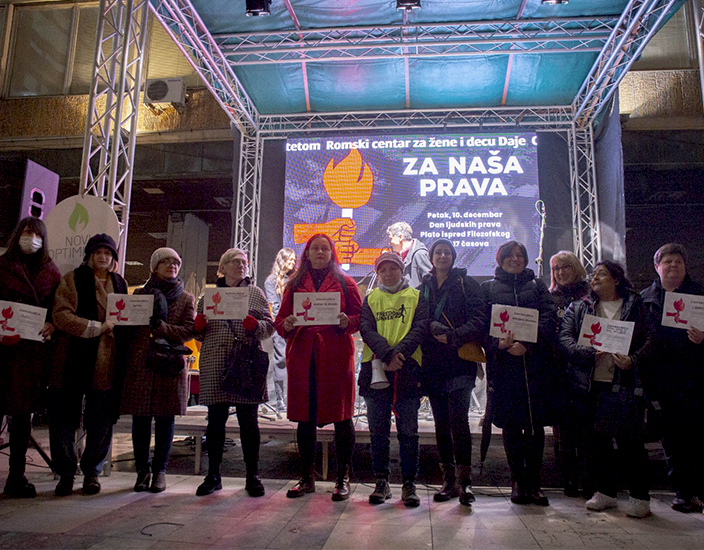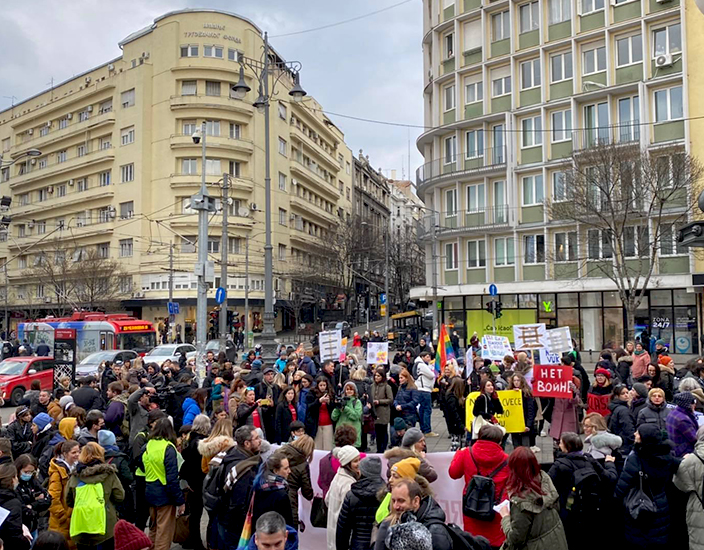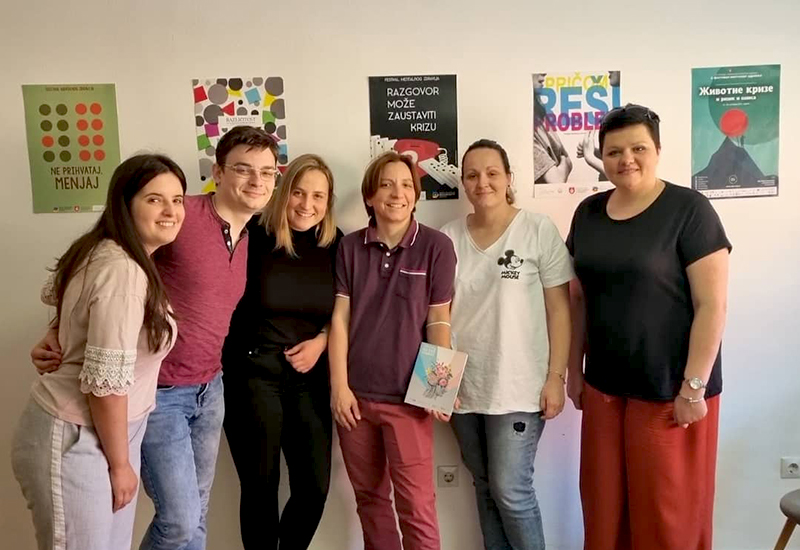The nonprofit organization Civic Initiative was founded in 1996, when a group of prominent activists recognized the need to create a social, civic base that supports democratic change by teaching citizens about their rights, democracy and civil society.
Today, Civic Initiatives are guided by fairness, responsibility and activism in their work, and conduct their activities through two programs: the Civil Society Capacity Building Program and the Public Policy Program.
This organization based in Belgrade recently won a blue badge that confirms their complete transparency on Neprofitne.rs, which is why we talked to Dragoslav Barzut, manager of the Public Policy Program of Civic Initiatives. In a new interview, Dragoslava told us more about transparency in the nonprofit sector, their connection to the community and the benefits of the Neprofitne.rs platform.
What does transparency mean to you?
Dragoslava: Transparency in our work is one of the most important principles that we in the Civic Initiatives are guided by. It is not just about the financial aspect, and enabling stakeholders to have an insight into how funds are provided and spent at all times. Transparency in decision-making and determining directions of action is also important to us. We believe that such a comprehensive approach to transparency is the only way to responsibly and participatoryly influence communities whose interests come first.

Protest rally "For our rights" on the occasion of the International Human Rights Day on December 10
How are you connected to the community?
Dragoslava: Civic Initiatives organize their activities through two programs: strengthening the capacity of civil society organizations and public policy program. These two programs are intertwined and complementary. Our community is largely civil society organizations, informal groups and initiatives for which we provide access to all our resources, including support through grants and organizational training. Within the public policy program, we monitor the work of various national and local authorities, representing the interests of the citizens of this country in exercising their rights. In addition, Civic Initiatives coordinate different networks and strive in their day-to-day work to bring together actors from different fields in order to make the most of existing civil society resources.
What achievements are you most proud of?
Dragoslava: On average, Civic Initiatives provide close to 500 services to civil society organizations in one year (administrative and legal, various types of counseling in all areas of importance for the work and activities of civil society organizations). In addition, the Resource Center organizes about 60 trainings, information sessions, as well as technical assistance sessions for organizations and informal groups that cover a wide range of topics important for the development and capacity building of civil society in Serbia.
Our greatest success is that organizations and informal groups, as well as individuals, recognize us as a reliable partner who can contribute to achieving their goals or solving the current challenges they face.

CI March in Belgrade on March 8, 2022.
What are the biggest challenges facing nonprofit organizations in Serbia?
Dragoslava: There are internal and external challenges that the nonprofit sector in Serbia is facing today, we can say – more than usual. Due to the authoritarian and closed system created by the current government, there are daily pressures on our order that cause a narrow space for the civil sector to act. In such conditions, networking and solidarity in the sector are policies that can enable us to perform a corrective role in society even in such circumstances. Certainly, this external challenge affects the difficult development and nurturing of the organizational culture of the nonprofit sector. Hence, one of the biggest problems remains the sustainability of initiatives and organizations. It is often most difficult to ensure continuity and consistency in the work of different initiatives and organizations.
In what ways do you show transparency in your work?
Dragoslava: In addition to the fact that financial and narrative reports on implemented activities are available on the Civic Initiatives website, Civic Initiatives persistently and constantly inform their community about relevant developments in the sector, trends, but also motivate and involve in their work by seeking feedback and empowering the development of a better and different society. All of this results in greater community involvement in achieving common goals: achieving the rule of law, equal access to justice, equal treatment in service delivery, and advocacy for democratic values.
What are the benefits that the Neprofitne.rs platform brings for the nonprofit sector in Serbia?
Dragoslava: One of the biggest challenges facing civil society organizations is the lack of connection with the community and the lack of capacity for its dissemination. This is due to a lack of trust in the nonprofit sector. There are many reasons for that, from targeting the sector by the pro-government media to various prejudices, but also ignorance of what the nonprofit sector is doing, i.e., its role in society. The majority of citizens are insufficiently informed about what civil society organizations really do. The work of the Neprofitne.rs platform is important here, for establishing trust in the nonprofit sector among citizens and supporting the culture of taking responsibility for the community.
What do you think needs to be done to increase transparency in the work of organizations and trust in the sector?
Dragoslava: What should be done relies in large part on the mission and vision of the Neprofitne.rs platform. Empowering initiatives and organizations to raise their voice, to stand behind it and to include others based on common values, among which transparency in work and decision-making as a principle, has the most important role, is a common task of all of us. The times when it was enough to get to where we are going and what we are doing have replaced the times when the most important thing is how we do it.


Leave a comment